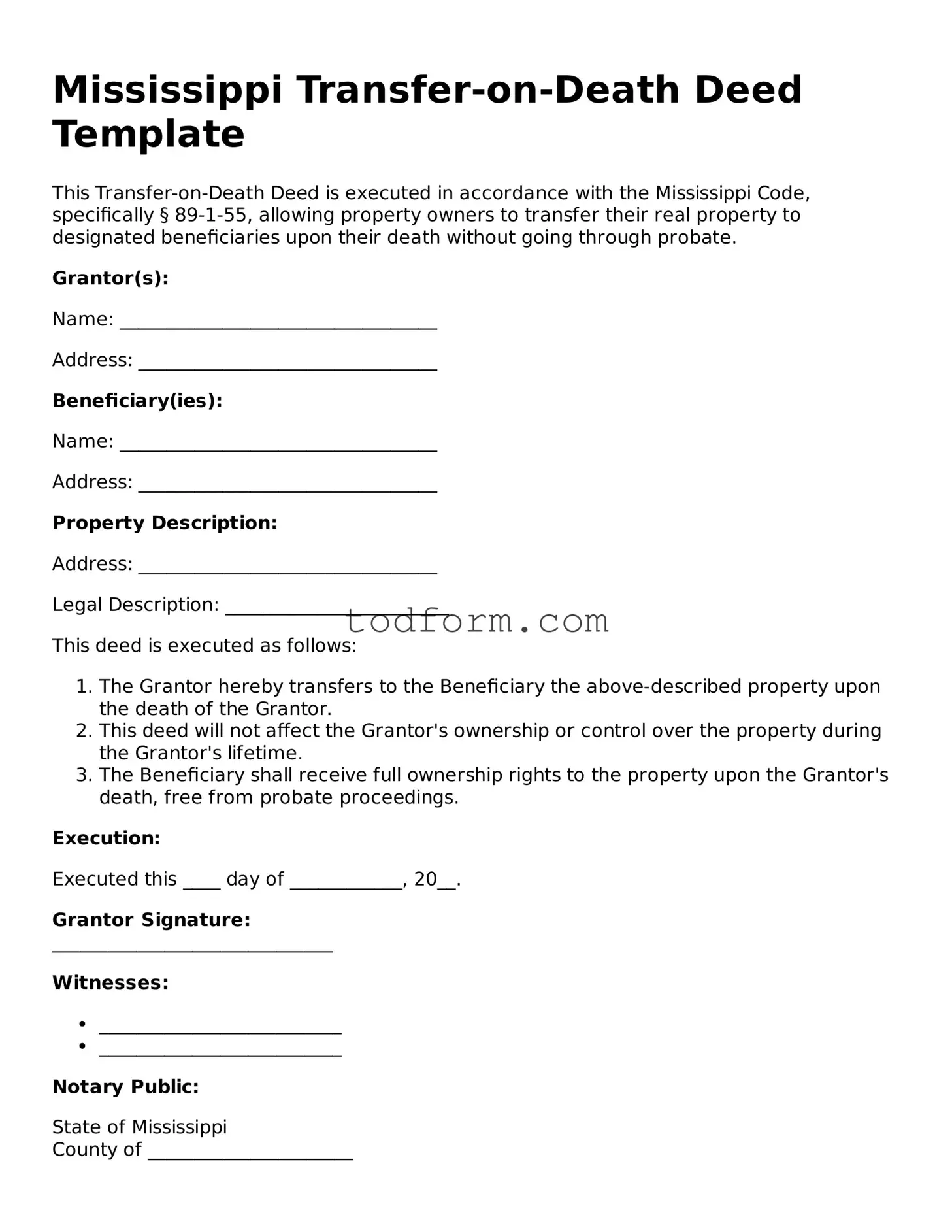Mississippi Transfer-on-Death Deed Template
This Transfer-on-Death Deed is executed in accordance with the Mississippi Code, specifically § 89-1-55, allowing property owners to transfer their real property to designated beneficiaries upon their death without going through probate.
Grantor(s):
Name: __________________________________
Address: ________________________________
Beneficiary(ies):
Name: __________________________________
Address: ________________________________
Property Description:
Address: ________________________________
Legal Description: ________________________
This deed is executed as follows:
- The Grantor hereby transfers to the Beneficiary the above-described property upon the death of the Grantor.
- This deed will not affect the Grantor's ownership or control over the property during the Grantor's lifetime.
- The Beneficiary shall receive full ownership rights to the property upon the Grantor's death, free from probate proceedings.
Execution:
Executed this ____ day of ____________, 20__.
Grantor Signature:
______________________________
Witnesses:
- __________________________
- __________________________
Notary Public:
State of Mississippi
County of ______________________
Subscribed and sworn to before me on this ____ day of ____________, 20__.
______________________________
Notary Public
My commission expires: ____________
